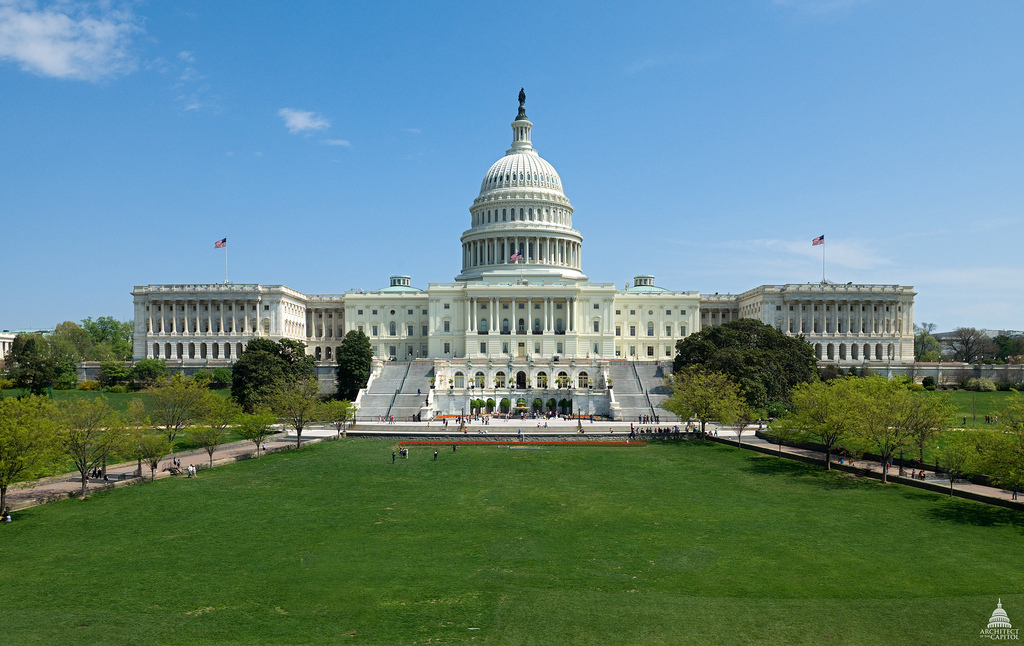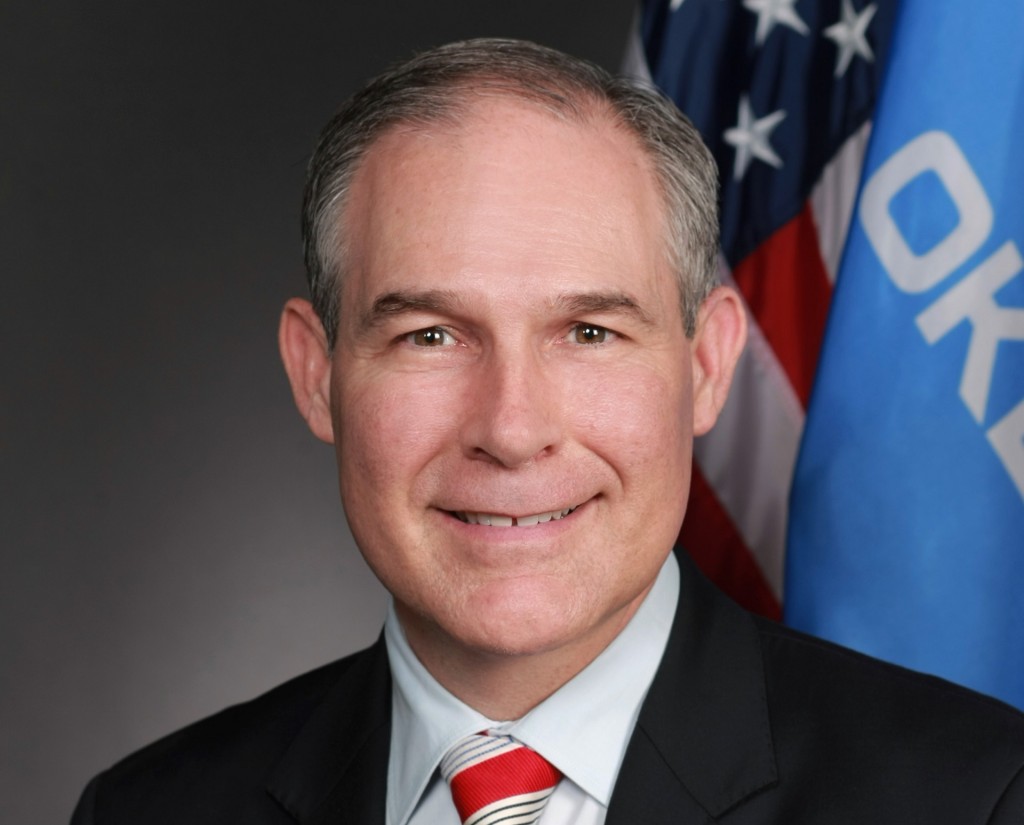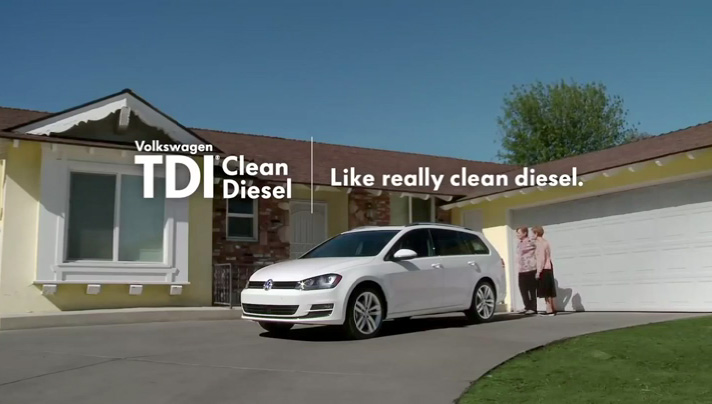While much of the nation's capital is preoccupied with the unpredictable Trump administration and its possible ties to Russia, the fate of the Environmental Protection Agency generates less news coverage.
That's not to say there hasn't been news.
Administrator Scott Pruitt is proceeding swiftly with a radical plan to restructure—critics suggest "dismantle" might be a better word—the agency charged with protecting U.S. air, water, and land from pollution.
DON'T MISS: Bill making it harder for scientists to sit on EPA Science Board advances (Mar 2017)
Within six weeks of Trump's inauguration, the word "science" had quietly been removed from the mission statement of the agency's Science and Technology office.
That was quickly followed by a House bill that placed increased restrictions on scientists nominated to join the EPA's Science Advisory Board, while explicitly making it easier for panelists from private industry to be selected.
Now we learn that, in fact, nine of the 18 seats on that board have just opened up. Last Friday, Pruitt dismissed five scientists who sit on that board and had expected to begin their second term.

U.S. Capitol Building
Four more seats were occupied by advisors who had finished the second of their two three-year terms and were expected to depart anyway.
Robert Richardson, an ecological economist and one of the first members to speak to the press, told the Washington Post, “I’ve never heard of any circumstance where someone didn’t serve two consecutive terms."
The five dismissals, he added, gave him “great concern that objective science is being marginalized in this administration.”
Indeed, it appears clear that Pruitt wants a very different kind of "science" advisor to sit on the Science Advisory Board.
The EPA head will "consider" replacing the departing members with panelists appointed from the very industries whose pollution the EPA regulates, according to a statement an EPA spokesman gave to The New York Times.
“The administrator believes," said spokesman J. P. Freire, "we should have people on this board who understand the impact of regulations on the regulated community."

Oklahoma attorney general Scott Pruitt, 2014
That goal would be facilitated by the bill to impose new limits on scientists who sit on the Science Board, HR 1431.
It was passed by the House, 229 to 193, just three weeks after it was introduced by Representative Frank Lucas [R-OK]. It now awaits action in the U.S. Senate.
Lucas, it should be noted, is from the same state as Pruitt, who as Oklahoma's attorney general sued the agency he now runs more than a dozen times to prevent it from enforcing regulations limiting pollution from its powerful fossil-fuel extraction and refining industry.
Pruitt recuses himself
Only last week did Pruitt recuse himself from weighing in on the agency's response to those lawsuits, many of which remain active.
He will absent himself as well from litigation around the Clean Waters of the U.S. rule, as well as anything to do with signed settlements following the Volkswagen diesel-emission cheating scandal.
His four-page recusal memo only came to light after it was obtained through a Freedom of Information Act request by E&E News, according to its article last week.
![Natural gas flaring from oil well [licensed under Creative Commons from Flickr user Sirdle] Natural gas flaring from oil well [licensed under Creative Commons from Flickr user Sirdle]](https://images.hgmsites.net/lrg/natural-gas-being-flared-from-oil-well-licensed-under-creative-commons-from-flickr-user-sirdle_100443858_l.jpg)
Natural gas flaring from oil well [licensed under Creative Commons from Flickr user Sirdle]
The scientific advisors who have been dismissed were charged with providing guidance to agency regulators on whether the research they use to craft policy responses has sufficient scientific rigor and integrity.
Pruitt said his actions came from a desire to make a "clean break" with the policies of the agency under the Obama Administration.
Reportedly, that came as a surprise to those members of the board, who had been told both in January and again more recently by EPA staff that they would be kept on for another term.
The agency began informing current board members of the changes last Friday and throughout the weekend.
It may be that Pruitt's expressed desire to bring the viewpoints of regulated industries to the forefront ran head-on into the peer-reviewed scientific literature showing that those industries have in fact polluted in ways that exceeded legal limits.
If the Senate passes HR 1421, Pruitt will find it far easier to confirm new panelists from regulated industries than career scientists, who will face new hurdles that specifically do not apply to those industry representatives.

Volkswagen TDI 'clean diesel' television ad screencap
In other words, scientists would no longer review recommendations on issues like methane emissions from fracked natural-gas extraction to ensure that they are based on sound and rigorous scientific analysis.
Instead, that function would fall to the fossil-fuel producers who profit from those wells.
Henhouse, meet fox?
EDITOR'S NOTE: We have revised this article to add more details about the number and terms of the science advisors who have been removed by EPA administrator Pruitt. That information comes from a variety of additional coverage published after we released this article on the morning of May 9.
_______________________________________













